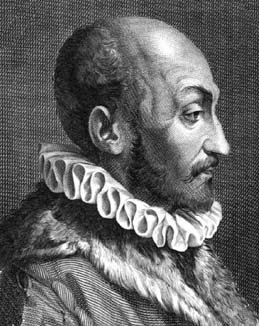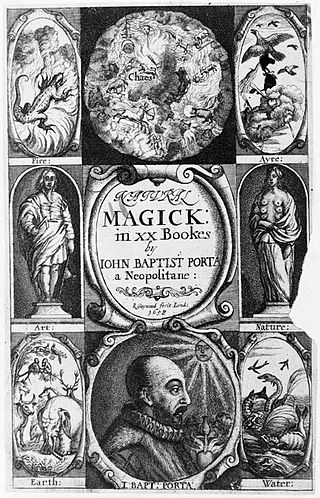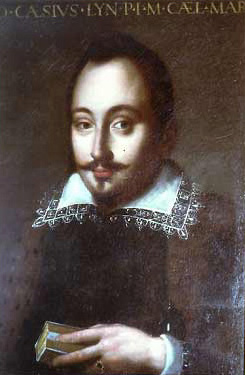Related Research Articles

Giambattista Vico was an Italian philosopher, rhetorician, historian, and jurist during the Italian Enlightenment. He criticized the expansion and development of modern rationalism, finding Cartesian analysis and other types of reductionism impractical to human life, and he was an apologist for classical antiquity and the Renaissance humanities, in addition to being the first expositor of the fundamentals of social science and of semiotics. He is recognised as one of the first Counter-Enlightenment figures in history.
This article contains information about the literary events and publications of 1744.
This article contains information about the literary events and publications of 1615.
This article contains information about the literary events and publications of 1602.
Events from the year 1558 in literature.

Girolamo Fabrici d'Acquapendente, also known as Girolamo Fabrizio or Hieronymus Fabricius, was a pioneering anatomist and surgeon known in medical science as "The Father of Embryology."
The Accademia dei Lincei, anglicised as the Lincean Academy, is one of the oldest and most prestigious European scientific institutions, located at the Palazzo Corsini on the Via della Lungara in Rome, Italy. Founded in the Papal States in 1603 by Federico Cesi, the academy was named after the lynx, an animal whose sharp vision symbolizes the observational prowess that science requires. Galileo Galilei was the intellectual centre of the academy and adopted "Galileo Galilei Linceo" as his signature. "The Lincei did not long survive the death in 1630 of Cesi, its founder and patron", and "disappeared in 1651."

Giambattista della Porta, also known as Giovanni Battista Della Porta, was an Italian scholar, polymath and playwright who lived in Naples at the time of the Renaissance, Scientific Revolution and Counter-Reformation.

Magia Naturalis is a work of popular science by Giambattista della Porta first published in Naples in 1558. Its popularity ensured it was republished in five Latin editions within ten years, with translations into Italian (1560), French, (1565) Dutch (1566) and English (1658) printed.

The year 1610 in science and technology involved some significant events.

The first scientific society, the Academia Secretorum Naturae was founded in Naples in 1560 by Giambattista della Porta, a noted polymath. In Italian it was called Accademia dei Segreti, the Academy of the Mysteries of Nature, and the members referred to themselves as the otiosi. The society met at the home of della Porta in the Due Porte section of Naples so-named in reference to two entrances to caverns that apparently served as a meeting place. "Candidates for membership had to present a new fact in natural science as a condition of membership," but otherwise membership was open. Its activities came under the subject of an ecclesiastical investigation and della Porta was ordered by Pope Gregory XIII to close his Academy in 1578 under suspicion of sorcery.
Della Porta is an Italian surname. It may refer to:
De Furtivis Literarum Notis is a 1563 book on cryptography written by Giambattista della Porta.

The fountain in the Piazza d'Aracoeli is a fountain in Rome, Italy, located at the base of the Capitoline Hill, in the little square with the same name.
Natural magic in the context of Renaissance magic is that part of the occult which deals with natural forces directly, as opposed to ceremonial magic which deals with the summoning of spirits. Natural magic sometimes makes use of physical substances from the natural world such as stones or herbs.

Federico Angelo Cesi was an Italian scientist, naturalist, and founder of the Accademia dei Lincei. On his father's death in 1630, he became briefly lord of Acquasparta.
Donatella della Porta is an Italian sociologist and political scientist, who is Professor of political science and political sociology at the Scuola Normale Superiore. She is known for her research in the areas of social movements, corruption, political violence, police and policies of public order. In 2022, she was named a fellow of the American Academy of Arts and Sciences.
The year 1535 in science and technology included a number of events, some of which are listed here.
The year 1558 in science and technology included a number of events, some of which are listed here.
David Rowland was a Welsh author, best known as the translator of Lazarillo de Tormes.
References
- ↑ Armytage, W.H.G. (1960). "Giambattista della Porta and the Segreti". British Medical Journal . 1 (5179): 1129–30. doi:10.1136/bmj.1.5179.1129. PMC 1966956 .
- ↑ Bergin, Thomas G., ed. (1987). Encyclopedia of the Renaissance. Oxford; New York: New Market Books.
- ↑ Grun, Bernard (1991). The Timetables of History (3rd ed.). New York: Simon & Schuster. p. 247. ISBN 978-0-671-74919-4.